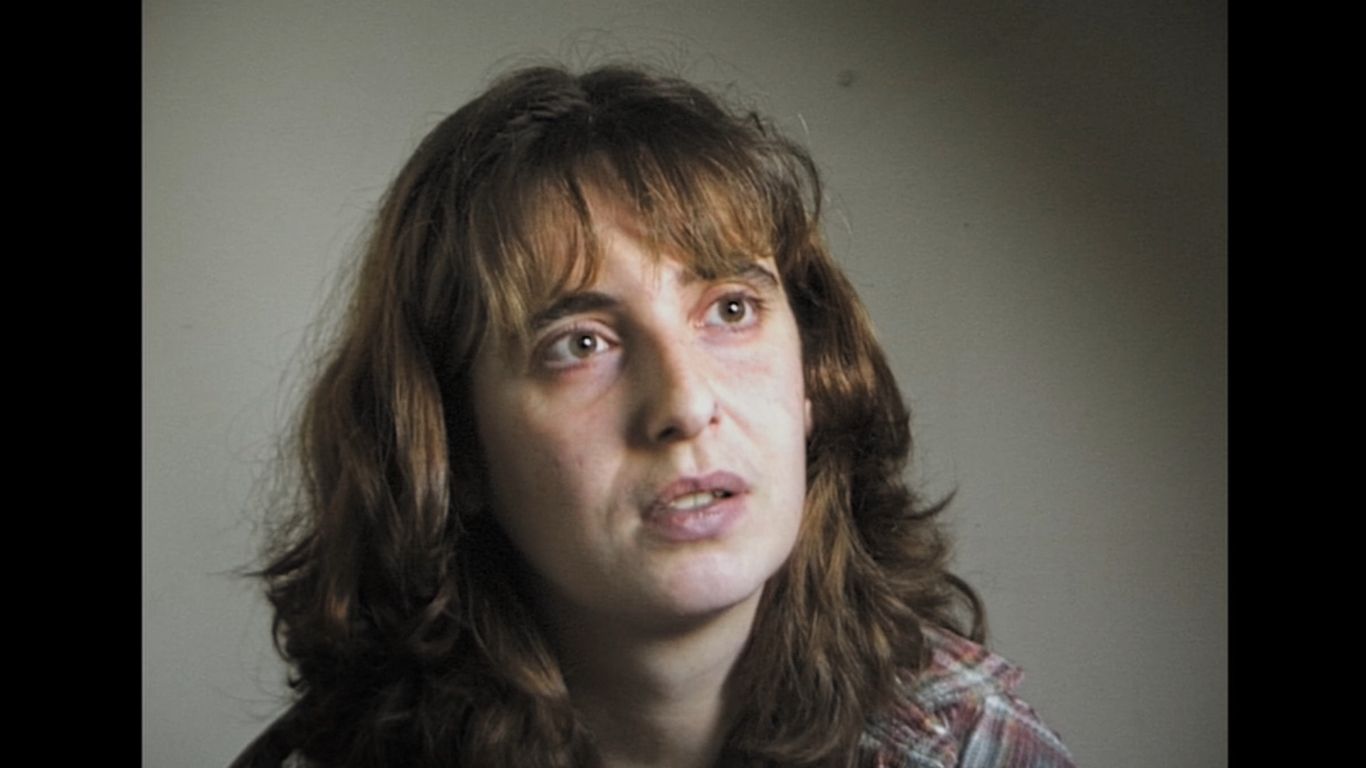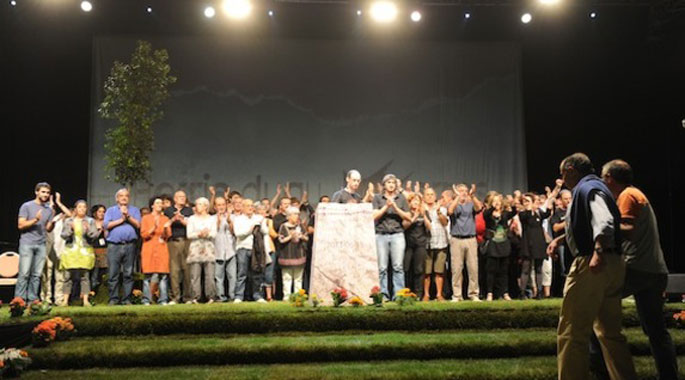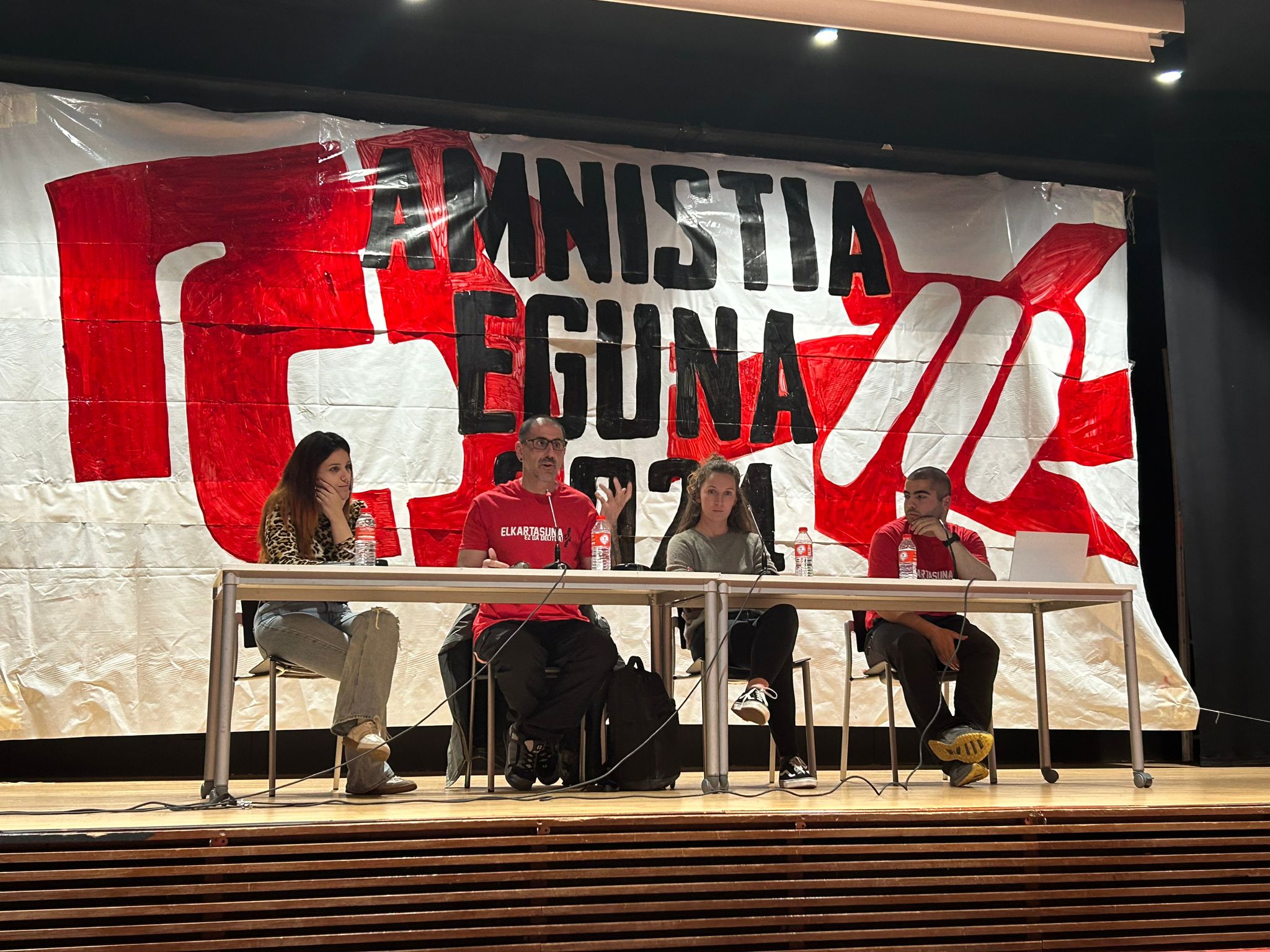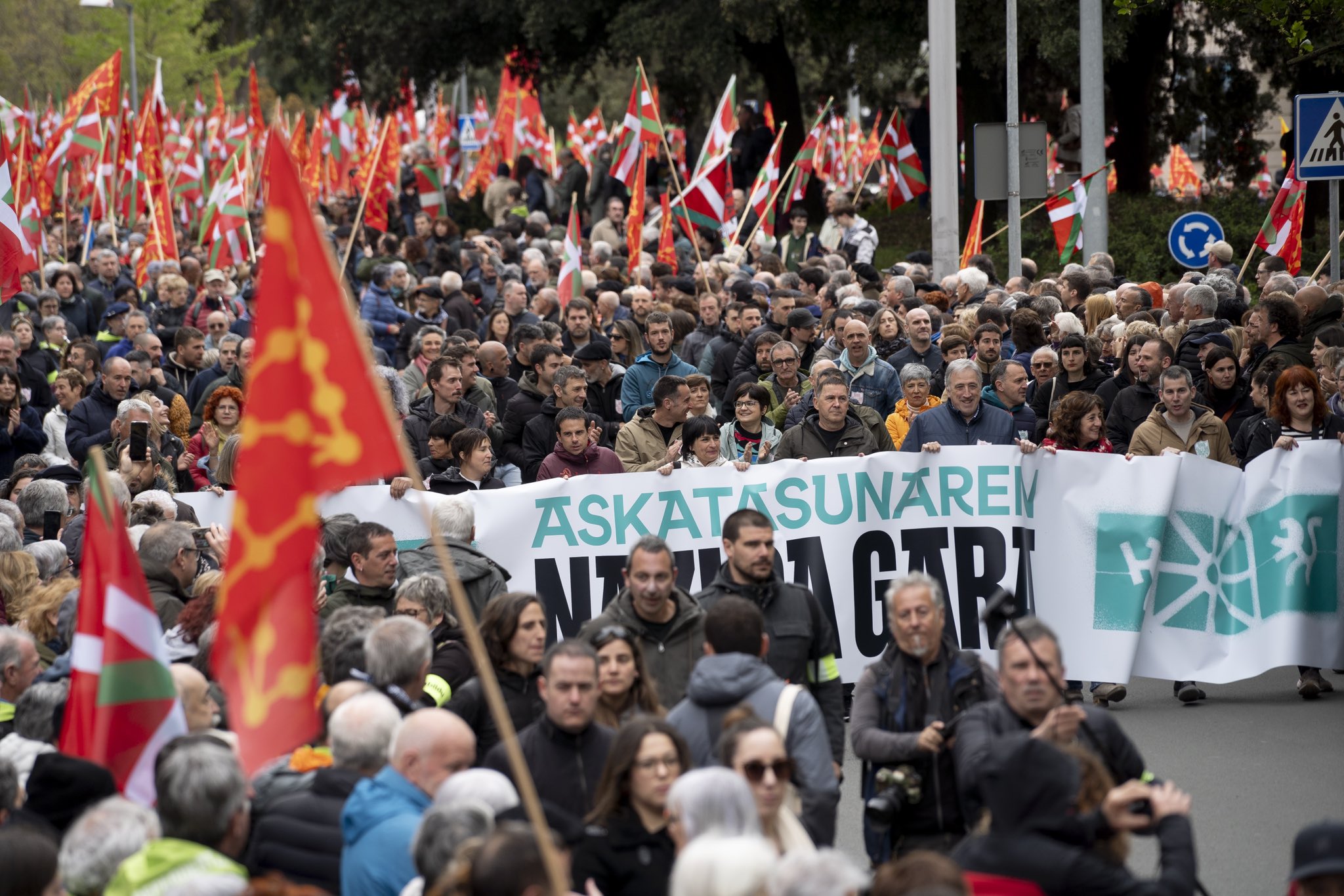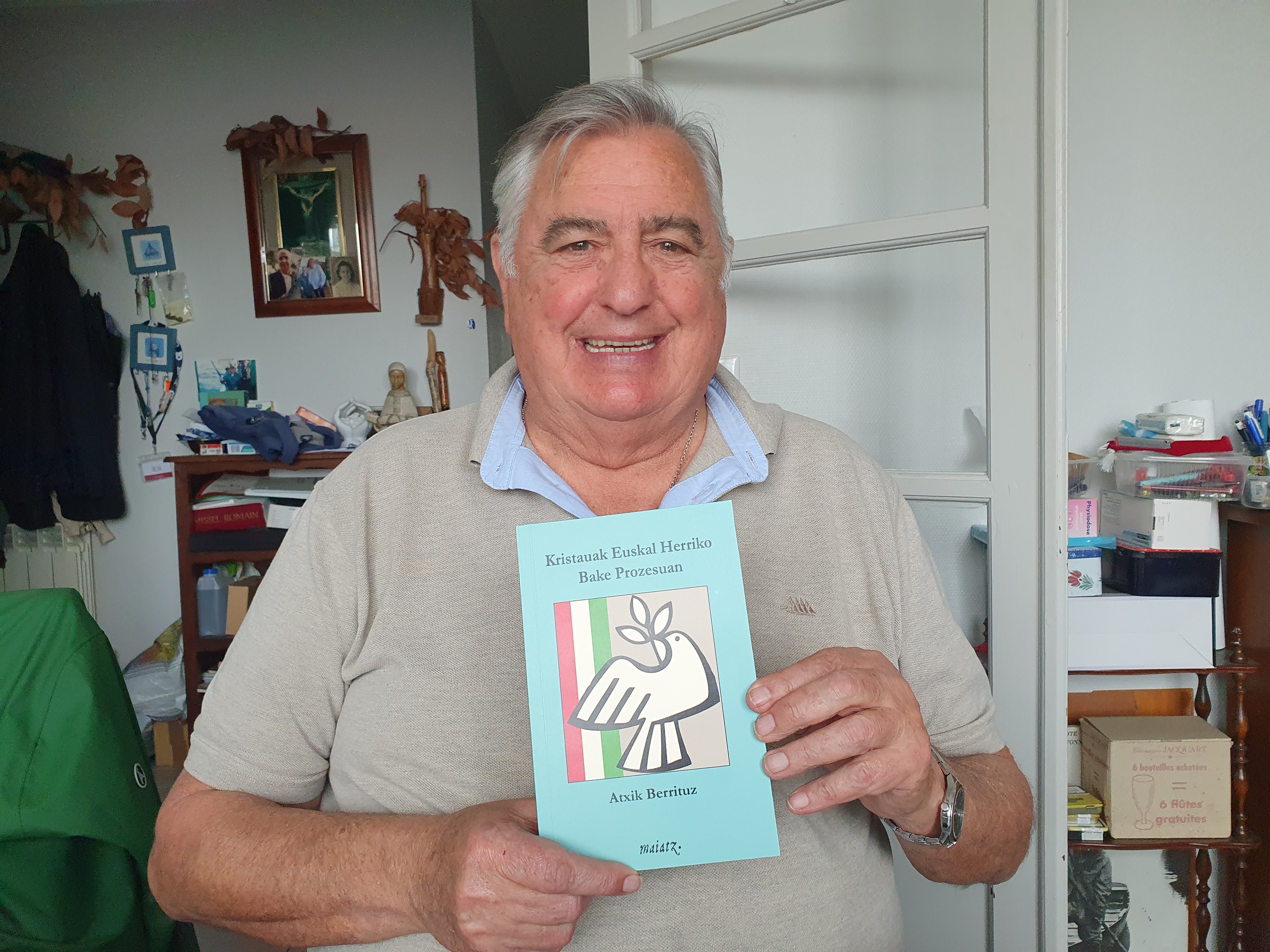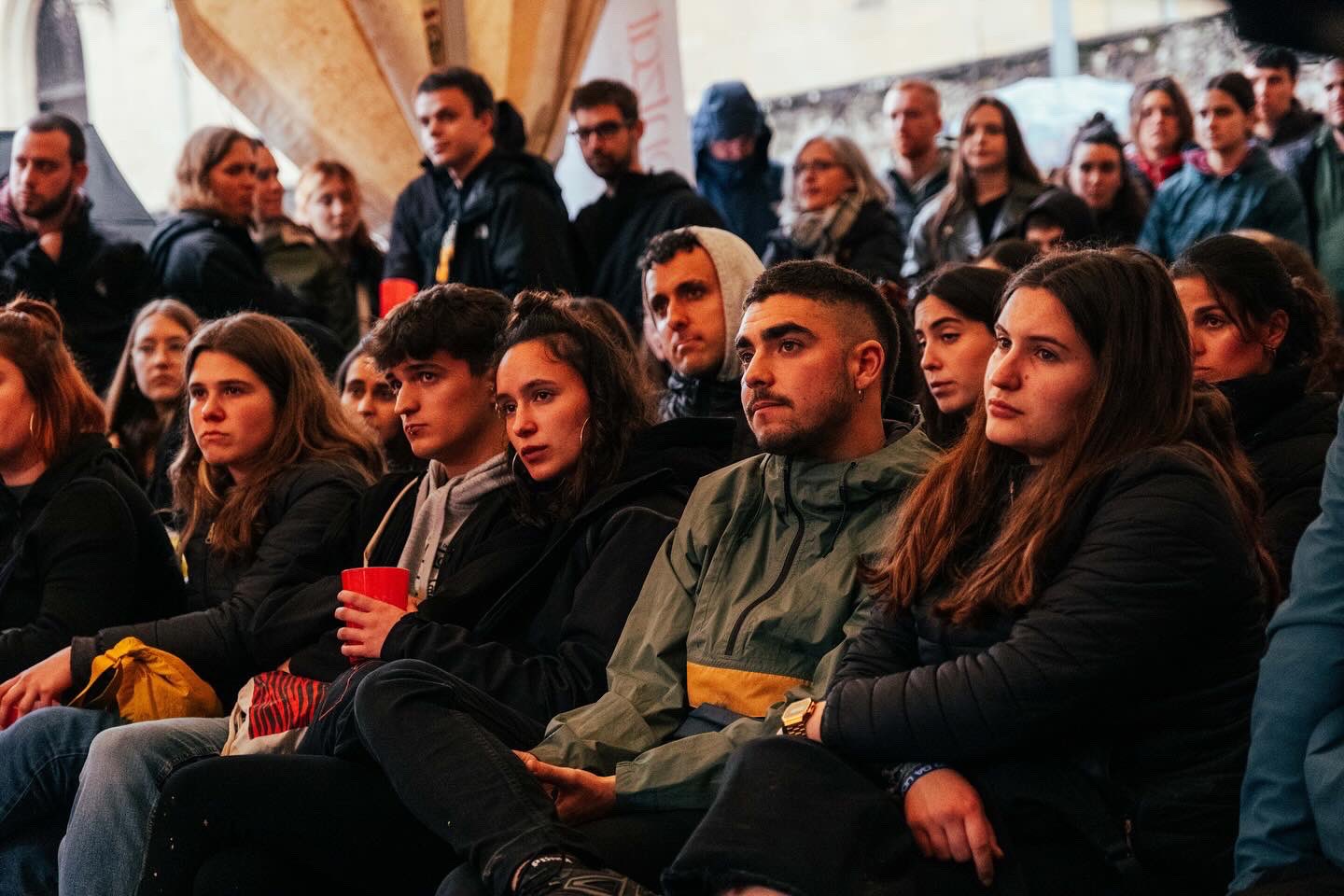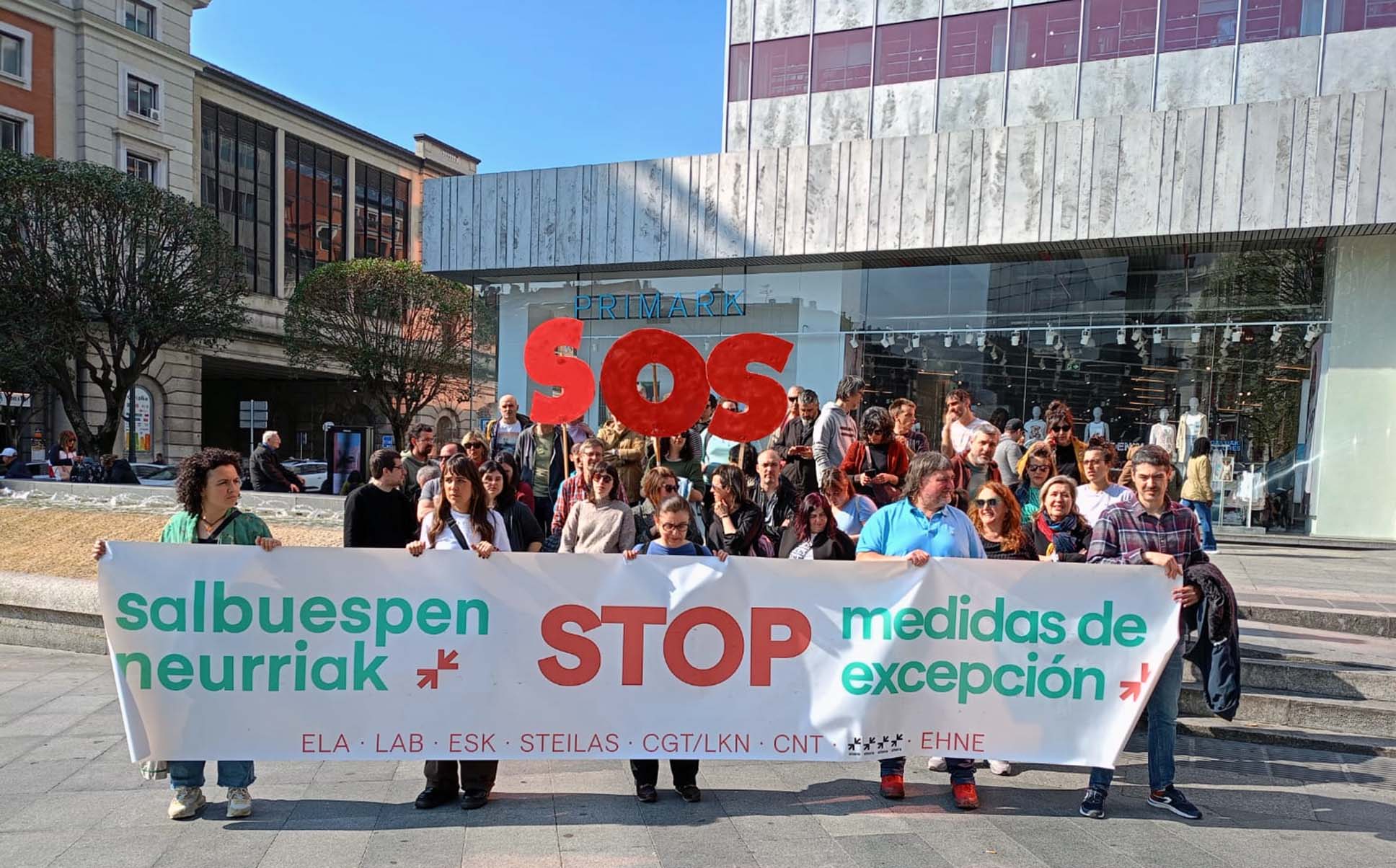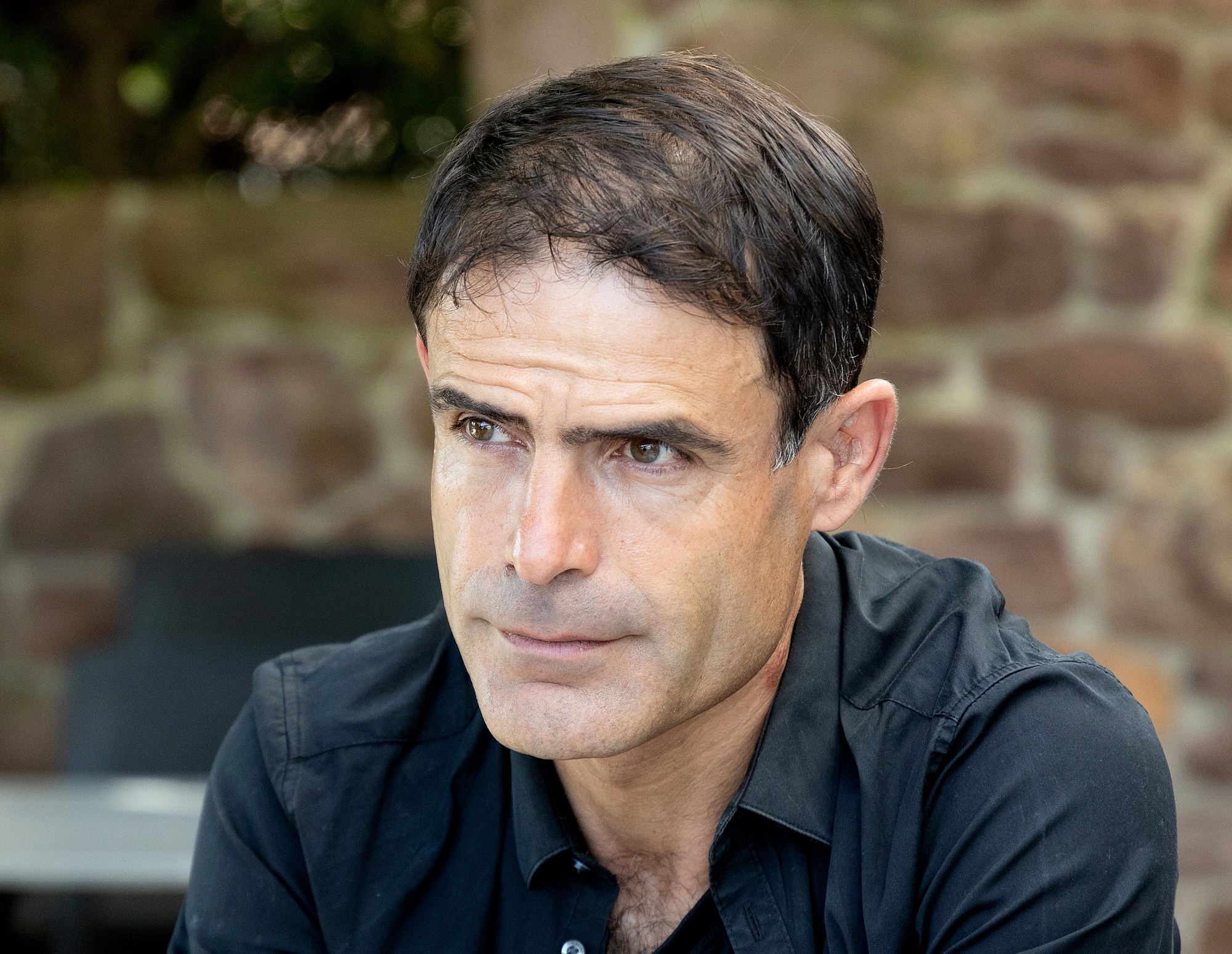In times of peace, what does peace mean?
- The program Armed Struggle and Prisons was presented in San Sebastián, today, October 6. Zuriñe Rodríguez and Oihana Etxebarrieta are the authors of the work. Edited by Susa, under the title Lisipe. Jule Goikoetxea is the editor of the collection.

Armed Struggle and Prisons is a feminist reading of the consequences of the armed conflict in the Basque Country. First offer of this feminist collection that will cover the same theme.
“The protagonist of the Basque conflict has been mainly the boy,” says author Zuriñe Rodríguez. The session was completed with “an analysis of the impact that the prison itself has had on daily life, that is, how the affective, sexual and emotional forms of relationships have affected people.”
After reflecting on the conflict in the era of Francoism, transition and democracy, the following question has been posed to the authors: “In times of peace, what does peace mean?” What are the benefits and what are the losses. Not all have been protagonists in the conflict, not to the same extent. The essayists conclude that the role of women has been secondary. Here's their quote: “What role should women and feminists play in ‘peace time’?”
The book is composed of testimonies of women and men, but not only of those who have participated in the armed struggle, that is, those who have traveled in ETA. Going further, taking into account and understanding the conflict in general, they have collected the opinions of those who have participated in it: “We have analyzed the conflict in a general way, taking into account the experiences of associations, groups or groups that are involved indirectly or in the environment,” the authors say to the public.
Zuriñe Rodríguez and Oihana Etxebarrieta have tried to connect a thread of this long conflictive period. They say that times have changed, because the way of struggle and society are not the same. “Society has changed. It is not the same, for example, that during the Franco era, when the parents were involved in the armed struggle, girls and boys took on the role. The attitude of the parents towards them. If we compare the experiences of that time with those of today, the woman of those times was not in the political struggles. That has changed.”
“Today, the young leftist woman not only looks at the struggle in a general way, she looks at sexual freedom, among other things. The woman struggles to make her own contribution.” The armed struggle and the prisons are the result of this struggle.
Society and time have changed, but the authors say “there is still something to change.” In their own words, “the collective idea or imagination of people is very masculine, heterosexual and strong, aggressive. "The Warrior" figure, among other things. In this model, the woman is left out, as are many men. Feminist women want to change the influence of the past model on the socialization of conflict.
The name LISIPE gives its name to the entire collection. It's the Amazon in Greek mythology. Pioneer of women. “Remembering Lisipe is a kind of tribute to the women who are fighting.” The book is comfortable: “Each person experiences conflict in his or her own way and we have narrated it with serenity and warmth,” say the writers.
The next sessions will be held by Danele Sarriugarte, Mari Luz Esteban, Idurre Eskisabel, Kattalin Miner and Lorea Agirre, among others.
Historically, a court of the Spanish Monarchy passed the following resolution: "The officers in charge of the custody of Iratxe Sorzabal applied electrodes to force him to testify, which constitutes a flagrant violation of his fundamental human rights." In other words, after the... [+]
Atxik Berrituz giristino taldeak Kristauak Euskal Herriko bake prozesuan liburua argitaratu du Maiatz argitaletxearekin. Giristinoek euskal bake prozesuan zer nolako engaiamendua ukan duten irakur daiteke, lekukotasunen bidez.
It’s not Christmas Day, it’s Christmas Day that we Basques need. Once a year there are repeated calls from potential patriotic parties and groups, on these dates, the homeland of the Basque Country is the Basque Country/Euskal Herria around the proclamation. It's a matter of a... [+]
Aberri Eguna elkarrekin ospatzeko xedez sortu zen Euskal Herria Batera plataforma. Aurten, ikusgarri bat eskainiko dute apirilaren 11n, Manex Fuchs antzerkilariaren, Lorea Agirre idazlearen eta Martxel Rodriguez dantzariaren eskutik.
The writer Juan Bautista Bilbao Batxi worked in a boat and sent the chronicles of his travels to the newspaper Euzkadi. Thanks to this, we have interesting chronicles in Basque from around the world from the beginning of the 20th century. In June 1915, he made his stop in... [+]










